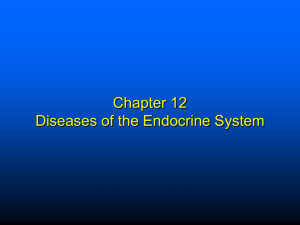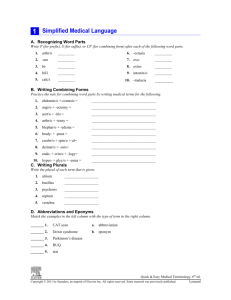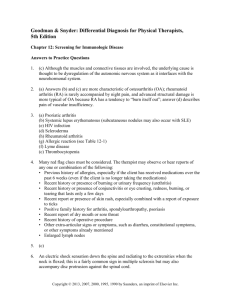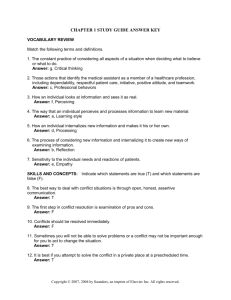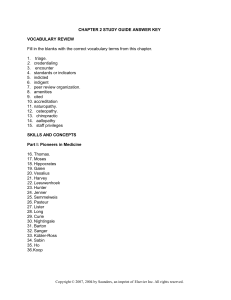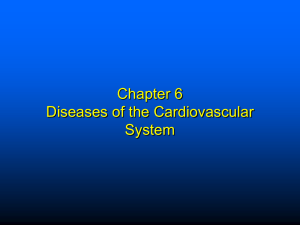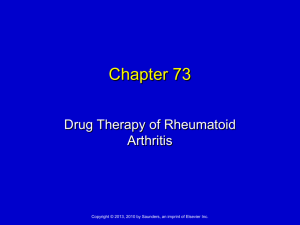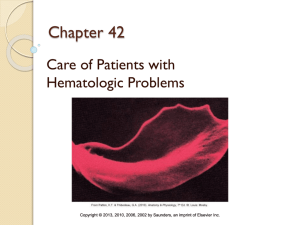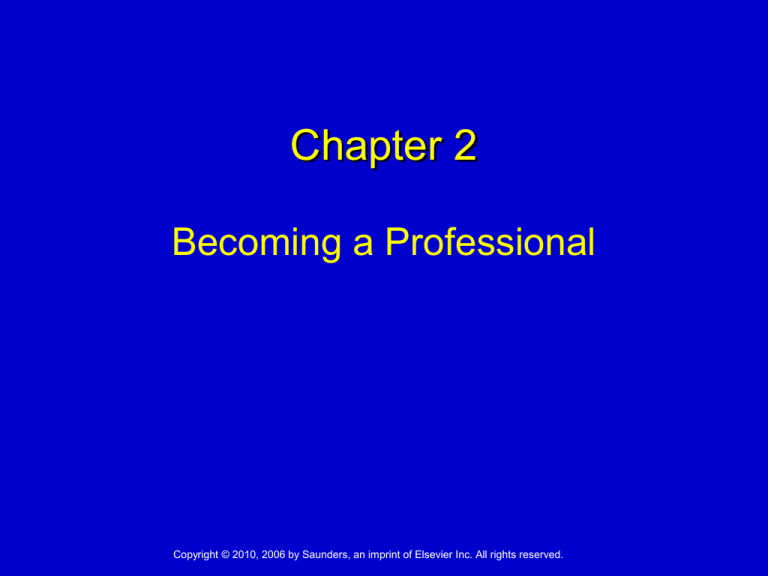
Chapter 2
Becoming a Professional
Copyright © 2010, 2006 by Saunders, an imprint of Elsevier Inc. All rights reserved.
1
Becoming a Professional
Technical and social skills expected:
Dependability
Loyalty
A positive attitude
Integrity
Diplomacy
Confidence
Copyright © 2010, 2006 by Saunders, an imprint of Elsevier Inc. All rights reserved.
2
Characteristics of a Professional
Dependable
Punctual
Efficient
Reliable
Loyal
Quality work
Initiative
Good work habits
Team player
Ethical
Copyright © 2010, 2006 by Saunders, an imprint of Elsevier Inc. All rights reserved.
3
Professional Characteristics
Positive attitude
Enthusiastic
Goal oriented
• Seeks new learning opportunities
Works well with others
Integrity
Honest
Trustworthy
Copyright © 2010, 2006 by Saunders, an imprint of Elsevier Inc. All rights reserved.
4
Diplomacy and Confidence
Diplomacy
Tact
• Builds good relationships
Empathy
• Understanding how others feel
• Putting yourself in their position
Confidence
Helps you make decisions
Helps you provide leadership
Allows you to compromise
Copyright © 2010, 2006 by Saunders, an imprint of Elsevier Inc. All rights reserved.
5
Professional (Technical) Abilities
Competence
Dexterity
Ability to move with skill or ease
Effective communication
Ability to get things done
Ability to use good English speaking and writing
skills
Nonverbal communication
Ability to use facial expressions and gestures
Copyright © 2010, 2006 by Saunders, an imprint of Elsevier Inc. All rights reserved.
6
Personal Appearance
First impression
Very important
Can make it only once
Example: day in court
Personal hygiene and grooming includes:
Bathing daily and using deodorant
Hair, fingernails
Make-up, perfume
Jewelry, minimal and plain
Copyright © 2010, 2006 by Saunders, an imprint of Elsevier Inc. All rights reserved.
7
Professional Dress
Uniform
Shoes
Neat, clean, pressed
Meets dress code of office
Clean, no scuffs
Comfortable and supportive
Other
No gum chewing
No tobacco odors
No visible tattoos
Copyright © 2010, 2006 by Saunders, an imprint of Elsevier Inc. All rights reserved.
8
Administrative Duties
Answering telephone
Scheduling—computer skills
Filing—record maintenance
Supply ordering
Prescription refills
Making referrals
Patient billing—insurance/coding
Payroll
Banking
Copyright © 2010, 2006 by Saunders, an imprint of Elsevier Inc. All rights reserved.
9
Clinical Duties
Vital signs—T, P, R, BP, Ht/Wt
ECGs
Blood draws—venipuncture
Administering injections
Patient teaching
Assist with procedures
Set up sterile equipment
Suture removal
Cast removal
Supply inventory
Copyright © 2010, 2006 by Saunders, an imprint of Elsevier Inc. All rights reserved.
10
Professional Training Programs
Many types of programs
Vary in length
Accreditation
Voluntary for programs
It helps programs achieve educational goals
Graduate is eligible for professional credentialing
• Pass either AAMA or AMT certification exam
Copyright © 2010, 2006 by Saunders, an imprint of Elsevier Inc. All rights reserved.
11
Nationally Recognized Accrediting
Agencies
Commission on Accreditation of Allied Health
Education Programs (CAAHEP)
Accrediting Bureau of Health Education
Schools (ABHES)
Copyright © 2010, 2006 by Saunders, an imprint of Elsevier Inc. All rights reserved.
12
AAMA Credentialing Agency
American Association of Medical Assistants
(AAMA)
Exam offered by appointment
Awards the certified medical assistant –CMA (AAMA)
Nationally recognized certification
200 multiple-choice questions
Score based on curve formed from examinees’ past and
present scores
Recertification required
60 continuing education units (CEUs) every 5 years
Copyright © 2010, 2006 by Saunders, an imprint of Elsevier Inc. All rights reserved.
13
RMA Credentialing Agency
American Medical Technologists (AMT)
Exam offered frequently throughout year
Awards the registered medical assistant (RMA) credential;
nationally recognized certification
Testing sites in major cities for MA graduates’ convenience
Three sections: general, administrative, and clinical with
more than 200 questions
Scores based on a scale, with questions weighted according
to difficulty; passing grade 70
Recertification
Recommended CEUs: 15 per year
Copyright © 2010, 2006 by Saunders, an imprint of Elsevier Inc. All rights reserved.
14
AAMA and AMT
Copyright © 2010, 2006 by Saunders, an imprint of Elsevier Inc. All rights reserved.
15
Advantages of Credentialing
Signifies your attainment of certain
competency standards
Allows an employer to make hiring decisions
based on applicant’s educational
qualifications
Shows commitment to medical assisting
profession
Makes you more marketable
Will earn more wages
Copyright © 2010, 2006 by Saunders, an imprint of Elsevier Inc. All rights reserved.
16
CMA (AAMA) Pin
Copyright © 2010, 2006 by Saunders, an imprint of Elsevier Inc. All rights reserved.
17
Registered Medical Assistant
(RMA) Pin
Copyright © 2010, 2006 by Saunders, an imprint of Elsevier Inc. All rights reserved.
18
Certification Test-Taking Skills
Examine your strengths and weaknesses
Refine your test-taking skills
Identify key words in sentence
Select patient-centered answers
Understand how to answer questions:
• “All of the above”
• “None of the above”
Copyright © 2010, 2006 by Saunders, an imprint of Elsevier Inc. All rights reserved.
19
Benefits of Continuing Education
Keep up with new knowledge
Reinforce areas related to your job
Networking with other professionals
Required by AAMA and AMT
Needed to recertify or retain active status
CMAs needs 60 CEUs every 5 years or lose
credential
RMAs recommended to earn 15 CEUs per year,
but do not affect credential
Copyright © 2010, 2006 by Saunders, an imprint of Elsevier Inc. All rights reserved.
20

